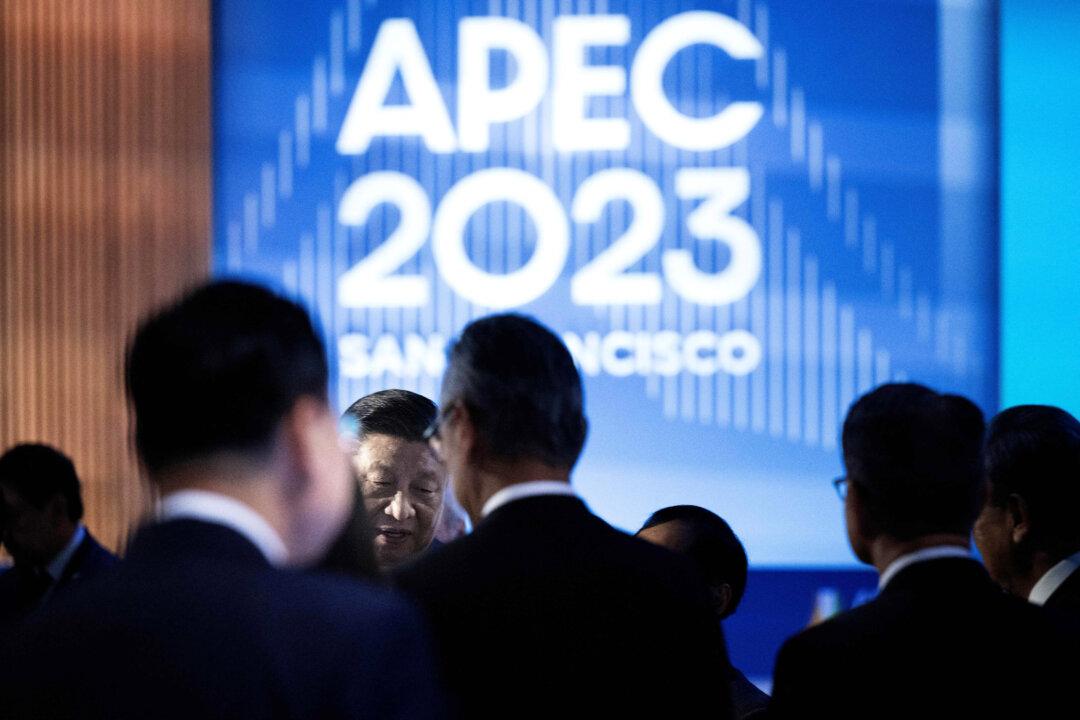Commentary
Viewpoints
Opinion
Embracing Xi, Inflaming Populism
John Q. Public can hardly be blamed for joining the chorus of suspicion and resentment when he sees numerous business leaders greet Xi Jinping in San Francisco.

Chinese leader Xi Jinping arrives for a meeting of economic leaders on the last day of the Asia-Pacific Economic Cooperation summit in San Francisco on Nov. 17, 2023. Brendan Smialowski/AFP via Getty Images




